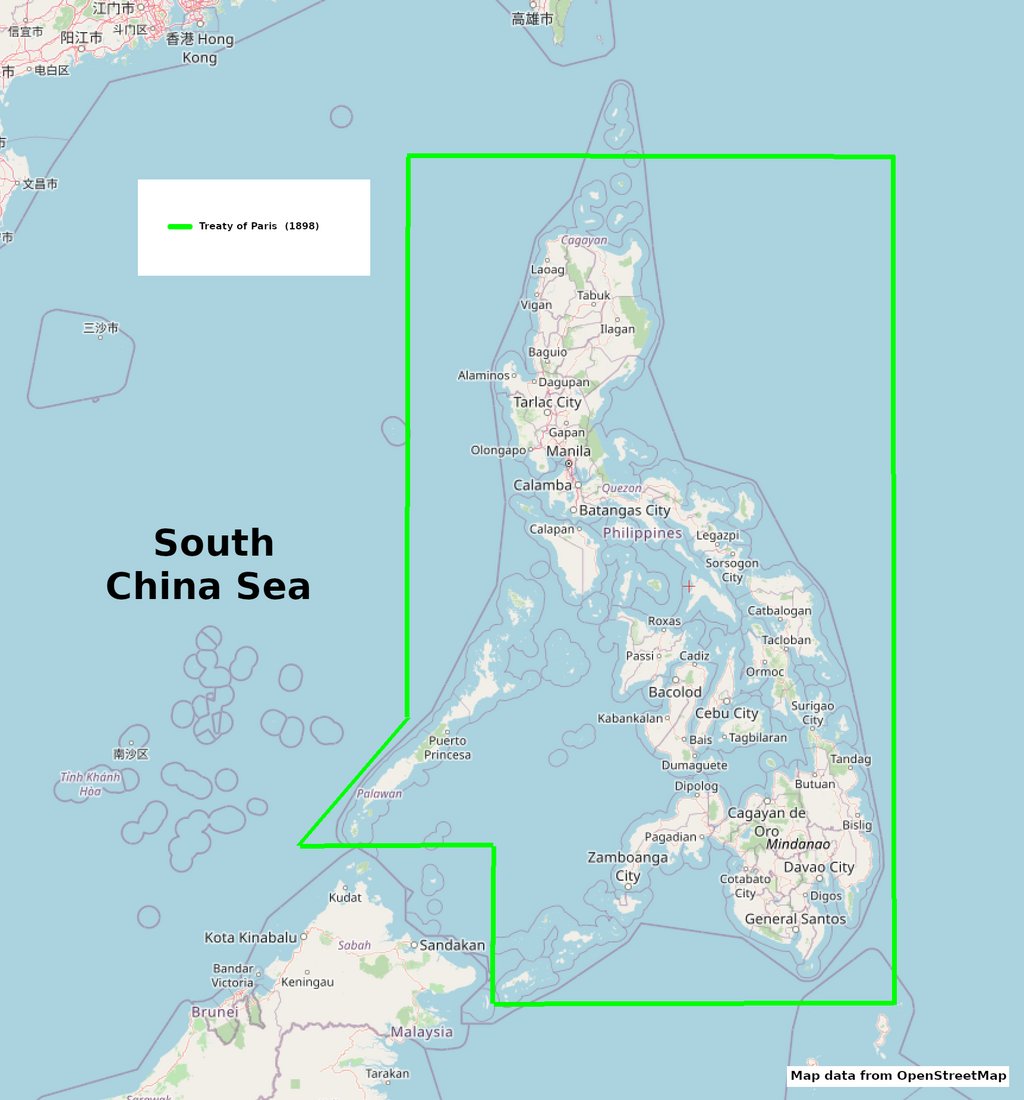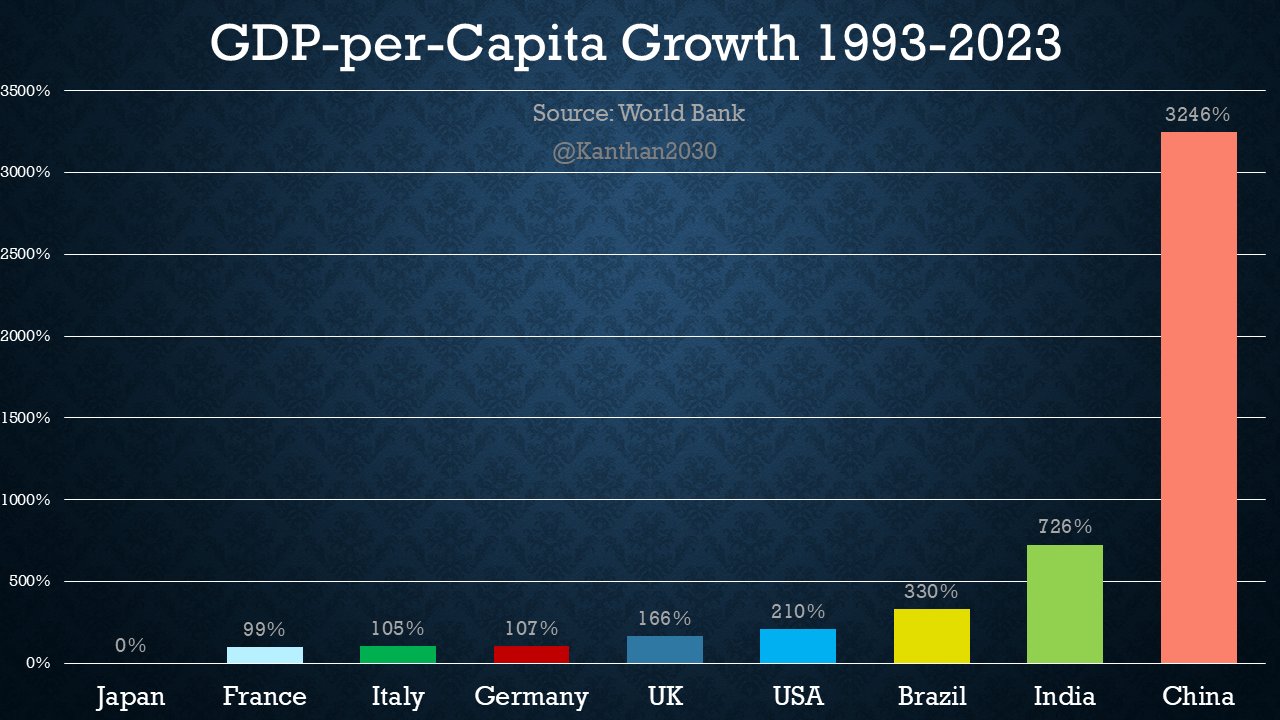I mean yeah on the face of it having similar (by then even a bit bigger) population size to China, plenty of natural resources and the largest amount of habitable land in the world, it seems bad that India is only producing a fraction of what China is. But maybe they can compensate for that by going hard on IT and finance to be like the rich, developed western nations. Working in factories or on construction sites is for losers anyway, smart people work in offices writing code or trading stocks - those are the high paying jobs, ergo it stands to reason that a country is better off the more people it has doing those kinds of jobs... ideally 100% of the population for maximum profit!
cfgaussian
I was also under a wrong impression. From how well versed you are on what's going on in Europe i thought you were European 😆
They also started teaching war tactics from NATO training manuals to children in Ukrainian schools. They are indoctrinating an entire generation to become cannon fodder for NATO.
I'm going to offer a more historical explanation and say that imo you have to go back further than WW2 or even WW1 to understand the deep seated issues that these countries have. A big reason why they are so mentally colonized is because they were physically and culturally colonized for hundreds of years by the Germans during the middle ages when the various crusader orders established their own states in the Baltics. During that time they developed a collective Stockholm syndrome and ever since they can't stop wanting to be German. And just like the western Ukrainians (who were also colonized by Germans in the form of the Austro-Hungarian empire) oftentimes going completely insane in their zeal to show their loyalty to the West, including being more brutal in their atrocities toward Russians and Jews than even the Nazis.
“England, it is true, in causing a social revolution in Hindustan [India], was actuated only by the vilest interests, and was stupid in her manner of enforcing them. But that is not the question. The question is, can mankind fulfil its destiny without a fundamental revolution in the social state of Asia? If not, whatever may have been the crimes of England she was the unconscious tool of history in bringing about that revolution.”
How my professor and a fellow student understood this quote is that Marx says that history can only change if Europeans do something, if Europeans are somehow involved. So Marx was very Eurocentric. Do you agree with this interpretation?
I have no doubt Marx himself had some eurocentric bias, in fact i've definitely encountered eurocentrism is some of the works of his that i have read, but this quote to me is not an instance of that. I haven't read "The British Rule in India" yet though so maybe I'm missing some context, or perhaps his eurocentrism comes across clearer in other passages in that work, but i don't think that this particular passage is saying that "history can only change if Europeans do something".
Rather, the way i interpret this passage is simply that it points out that the British, inadvertently and as an unintended consequence of actions otherwise taken purely with malicious intent, caused an advance in the social state of India by awakening revolutionary consciousness, and that the process of decolonization that results from this may even be necessary to advance the revolutionary process in the imperial core itself.
It doesn't follow that India (and Asia more generally) could not have achieved this social progress without British intervention. In fact i would argue that the destruction of productive capacities as a result of the plundering of India by British imperialism greatly set back their material development, and therefore also delayed the social development which they would have experienced as a result of the natural development of productive forces.
God, that's gotta be the whitest shit i've ever read.
Excellent points all around. Thanks! I love that we can always rely on you to give us the sobering big picture analysis whenever we get too in our heads about something.
Yeah, you're right...i just get frustrated sometimes because i'm really really sick of these assholes. Can't wait to see them gone.
It definitely wouldn't be a good thing, that's for sure, as an immigrant i am acutely aware of that. I'm just saying whichever way you view that possibility, whether you think it would accelerate us even faster into open fascism (though it's hard to argue that the current regime isn't fascist when you see how they fund+arm literal Nazis, run cover for a genocide, and persecute journalists and activist groups who dare to go against the accepted narrative) or you think that they are a wild card who may shake things up and possibly do a U-turn on at least the most self-destructive Ukraine policies if not put up some resistance to the NATO-EU Atlanticist project (highly unlikely imo, at the end of the day the right wing's "populism" is always fake and a cover for giving more money and power to capitalists), there is no reason quite yet to fearmonger/get your hopes up. What we will see is more of the same, more doubling down on sunk cost. The foot is stuck to the accelerator pedal and the car is heading straight for a cliff.
Mostly by Sinn Féin supporters, afaik.
 As you can clearly see, these boundaries exclude all the contentious spots that are in dispute today: it excludes the Spratly Islands in their entirety (where the famous Second Thomas Shoal is located) and it excludes the Scarborough Shoal which is right outside the border.
As you can clearly see, these boundaries exclude all the contentious spots that are in dispute today: it excludes the Spratly Islands in their entirety (where the famous Second Thomas Shoal is located) and it excludes the Scarborough Shoal which is right outside the border.
You'd think that's too far fetched even for a joke that someone would have a take like that but it's not as far from reality as you'd think. I've known people who genuinely seem to believe that we've evolved past the need for industry and we can all just write apps for a living.